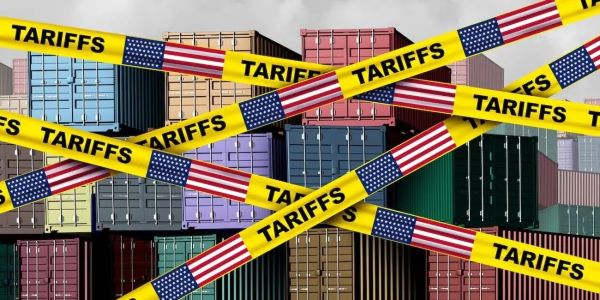In April 2025, former U.S. President Donald Trump proposed sweeping tariff increases on most imports, aiming to protect American industry and raise government revenue.
However, experts warn that this policy could severely damage trade relations with Africa—while offering minimal economic benefit to the United States.
A recent report by the United Nations Conference on Trade and Development (UNCTAD) highlights that many African nations, especially those under the African Growth and Opportunity Act (AGOA), could lose vital access to U.S. markets.
These countries already face structural trade challenges such as high shipping costs, strict quality standards, and complex regulatory barriers. Tariffs would further reduce their competitiveness and undercut fragile industries.
The U.S. currently imports about $8 billion worth of goods from African nations annually. But despite this trade volume, most African countries contribute very little to the U.S. trade deficit.
According to UNCTAD, 28 of the 57 U.S. trading partners each account for less than 0.1% of that deficit. As such, the report argues that imposing new tariffs on them would do little to reduce the overall imbalance but could devastate their export economies.
“Tariffs on small and least developed countries won’t significantly boost U.S. revenue,” the report explains. “Instead, they would disproportionately harm vulnerable nations that rely on trade preferences for economic growth.”
While AGOA was created to encourage African exports to the U.S. through duty-free access, many countries still export a narrow range of products. This lack of diversification makes them especially susceptible to tariff shocks.
Despite these risks, the U.S. could technically collect more in customs duties from certain African countries if reciprocal tariffs are enforced. Here are the top 10 African nations from which the U.S. could gain the most in tariffs:
| Rank | Country | Potential U.S. Customs Revenue | Share of Total U.S. Duties (2024) |
|---|---|---|---|
| 1 | Tunisia | $313 million | 0.38% |
| 2 | Madagascar | $290 million | 0.35% |
| 3 | Côte d’Ivoire | $174 million | 0.21% |
| 4 | Botswana | $154 million | 0.19% |
| 5 | Algeria | $126 million | 0.15% |
| 6 | Lesotho | $119 million | 0.14% |
| 7 | Mauritius | $93 million | 0.11% |
| 8 | Nigeria | $58 million | 0.07% |
| 9 | Namibia | $40 million | 0.05% |
| 10 | Angola | $38 million | 0.05% |
Analysts warn that such a move would strain U.S. -Africa relations and potentially reverse decades of progress in trade cooperation. The policy’s true cost may not be measured in dollars alone but in lost partnerships, economic instability, and missed opportunities for mutual growth.









